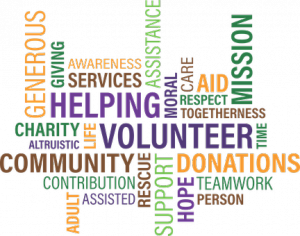Nonprofit Directors & Officers Liability Insurance
Directors and Officers Liability Insurance (D&O) are frequently associated with large for-profit companies. Unfortunately, for-profit companies are not the only types of companies who can benefit from Directors and Officers Liability Insurance. Many people within the non profit industry misunderstand that officers and directors (including trustees) of a nonprofit organization are exposed to liability for their relationship with the non-profit organization. In today’s litigious society, if a person sits on a board for a nonprofit the likelihood that they will at sometime have to face some type of liability is high. Nonprofit Directors and Officers Liability Insurance is a necessary coverage for all non profit organizations.

The primary role of directors and officers of a non profit organization is to manage the fiscal stability of the organization as well as to provide the staff of the organization with an environment where they can safely and successfully execute the mission of the organization. Many instances arise where the nature of the non profit organization is drastically different from the experience of the people who sit on the board. The non profit commonly asks for these people to sit on the board in order to get guidance from their area of expertise. This does not dissolve these leaders from liability relating to all aspects of the organization. This means all organizations should carry adequate insurance coverage. Here are four reasons to carry adequate insurance coverage and three tips to limit exposure of all nonprofit organization.

4 Reasons to Secure Coverage
Volunteer Protection Act
The Volunteer Protection Act was passed in 1997. This Volunteer Protection Act states that no volunteer of a nonprofit organization or governmental entity shall be liable for harm caused by an act or omission of the volunteer on behalf of the organization or entity. These laws are limited to areas in which the directors have specific expertise and certifications showing their expertise in any area that benefits the non profit. These protections are not all encompassing and the directors still face liability if they give faulty advice or offer advice outside of their realm of expertise. Because of the limits of this and other similar state laws, non profit organizations need to secure adequate insurance coverage.
Many Reasons for Officers to Face Liability
Directors and officers can be sued for a range of issues including fiduciary responsibilities, improper conduct by employees and volunteers, failure to fulfill the organization’s non-profit mission, and misuse of donor funds. The number of reasons a lawsuit can occur is long and vast. The only true way to protect a nonprofits board of directors is to secure adequate Nonprofit Directors and Officers Liability Insurance.
Many Nonprofit Organizations Face Liability
Sixty-three percent of nonprofit organizations reported a D&O claim within the past ten years. That is compared to only twenty-seven percent for private companies. Leaders in the nonprofit industry are forced to juggle many responsibilities. These responsibilities include dealing with a tight budget, engaging with volunteers and wealthy donors. All while serving the mission of the organization. Leaders frequently serve in a leadership position at a nonprofit organization because of a deep passion for the community they serve and the mission of the nonprofit organization. Unfortunately, many of these same leaders forget to use equal discretion in their non profit life as they do in their professional life. This is likely to cause the higher likelihood of a non profit organization to face a lawsuit. Nonprofit Directors and Officers Liability Insurance is always the best way to protect the leaders within an organization and will up the likelihood of qualified people to serve on the organizations board.
Damages Often Exceed the Assets of the Nonprofit
In most cases, a nonprofit organization is not operating with a huge budget surplus. Most nonprofits do not have an extensive amount of cash on hand. Because of this lack of cash, most non profits do not have the ability to provide legal defense costs when it faces a lawsuit. Nonprofit Directors and Officers Liability Insurance can cover some or all of the legal costs resulting from lawsuits against leaders of the organization.

3 Tips to Limit Exposure
Understand the Organizations Risk
Taking the time and effort to understand all of the risks a nonprofit organization faces is the first and most important step any organization needs to take in order to prevent the exposure non profit organizations face. Partnering with an independent insurance agent and other risk management professionals is the best way to attempt to understand exactly how much risk the organization faces and the best way to limit the exposure.
Implement Safety Programs
Adequate safety measures are important for all non-profit organizations. Because of the common use of volunteers it is crucially important to train the key employees on how to administer a safety program. It is equally important to be able to express the importance of that safety program to all volunteers and other third parties associated with the organization.
Purchase Nonprofit Directors and Officers Liability Insurance
The absolute best way to protect a nonprofit organization and its leaders is to purchase Nonprofit Directors and Officers Liability Insurance. Partnering with an independent insurance agent is a great way to get the most comprehensive policy and acquire credits and discounts on behalf of the organization. An independent agent can quote your policy to multiple carriers and force them to compete for your business. Having an insurance professional on the board of directors may be beneficial to many nonprofit organizations.
| Class Codes | Brief Business Description of Operations we Cover |
| 8864 | Social Services Organizations. |
| 8842 | Group Homes. |
| 7720 | Juvenile Detention Centers. |
| 8742 | Social Services Professionals. |
| 8833 | Hospital Professionals. |
| 9040 | Hospitals- Non Professional (non-medical). Applies to above whereas employee is not medically trained such as maintenance, laundry, food services. |
| 8837 | Charitable and Welfare Organizations- MA, TX, WI. Includes organizations that collect, recondition and sale items in their stores. |
| 8861 | Charitable and Welfare Organizations- MO, NV, VA. Applies to most organizations that provide charitable or welfare assistance to the needy, challenged, or abused. Organizations may provide accommodations, meals, counseling, etc. |
| 9063 | YMCA, YWCA, YMHA, and YWHA institutions. |
| OTHER | Other target classifications used by many non-profits and charitable organizations include: Transportation Services (Meals on Wheels)- 7382, Special Needs Schools- 8868, Companions- 8835, Congregate Meal Sites- 9079, Food Pantry- 8006, Home Health Aides- 8835, Soup Kitchens- 9079. |



